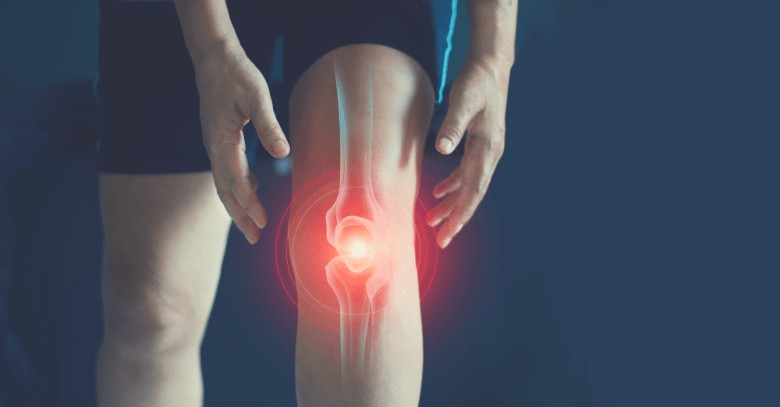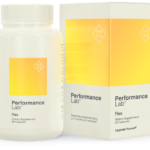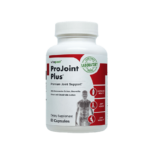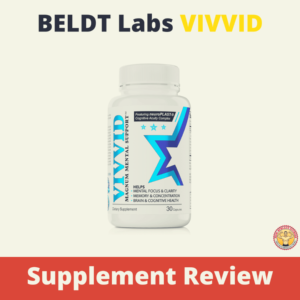As we age, we begin to experience aches and pains in our joints. Some of these issues are from ailments, deficiencies, or poor health in general.
Often, these problems are treated by medications or a change in lifestyle. Another way you can help improve skeletal strength involves supplements.
You may have questions if you should take a supplement, if they work, or which ones you should take. We plan to answer all these and more in this guide.
Why You Might Need A Joint Supplement
Dozens of reasons exist why you might need a supplement.
Some people don’t have the best diet. They eat too little or too much processed foods that contain very little vitamins and nutrients.
Over time, they may become vitamin or nutrient deficient. Deficiencies can wreak havoc on the body.
One should make healthy lifestyle changes first before a supplement and speak with a doctor. They will recommend which ones, if any, you may need.
Another common reason you may need a supplement deals with joint conditions like arthritis, osteoarthritis, or rheumatoid arthritis.
Many supplements market to sufferers of these conditions. However, they usually state they can cure the condition. This simply isn’t true.
Some of these supplements may even cause harm to your health.
Speak with a doctor before beginning any treatment as it may interfere with your current medications or with your overall health.
Other people may have health conditions that cause nutrient deficiencies like diabetes, alcoholism, or cancer.
Typically, people who suffer from this receive treatment from a doctor, but they may recommend extra care.
In this case, your doctor will notify you of which supplements you should take and how you should take them.

How Do Joint Supplements Work?
Your body needs a certain amount of daily intake levels for each vitamin or nutrient. If you fail to eat a proper diet, you lose out on several essential nutrients.
Many end up taking supplements to replace what they miss from their diet. Others take it for health reasons or because they want a preventative boost to ward off any sickness or diseases.
Taking a supplement is as simple as eating, just pop it in your mouth and swallow. Some you may even have to eat with or drink a glass of water for optimal digestion.
There are times when a pill isn’t enough.
Those that must take supplements from a doctor might find the process different. Some may need intravenous (IV) or a shot to replenish.
This will vary depending on your condition and severity. For this method, you go to your doctor’s office, hospital, or clinic.
You may even have a healthcare provider visit your home to administer the IV or shot.
Vitamins and key nutrients were linked or proven to help fight sicknesses, diseases, or health conditions.
Some studies on supplement replacement were conducted with these. Surprisingly, these studies found that supplements work just as well as eating a meal to get nutrients.
However, some scientists are wary of the results. Many of the studies conducted used observational trials.
This means they weren’t actually tested against a placebo pill.
The studies that were scrutinized and replicated against a placebo found that the supplements didn’t help as much as they thought.
Observational studies didn’t account for diet factors, exercise habits, or other variables.
It’s possible the positive results were seen because of the participant living a healthier lifestyle while taking the supplement.
Now, some supplements have shown that they do contribute to your skeletal strength and overall health, but more research is needed.
What to Look for in a Joint Supplement
The type of supplement you need will depend on the health condition or nutrient you lack. One should take caution when beginning any supplement regiment and speak with a doctor.
The average person could improve their skeletal strength through exercise and a healthy diet. That doesn’t mean those with health conditions can’t too.
They certainly can but the condition they have may limit their capacity to exercise or nutrients from their diet may not be enough. In that case, a supplement could help aid them.
Stay clear of any supplement that claims it can cure a health condition or disease. These supplements could cause more health problems.

Best Joint Supplements for Skeletal Strength
Some supplements are better than others for your joints.
For example, you wouldn’t want to take a B vitamin complex supplement if you’re not low on B vitamins and want to improve your skeletal strength.
Below are the types of supplements you should consider if you want to improve joint health. Remember that just because it’s a vitamin, you still can take too much and cause harm.
Follow the recommended intake in the instructions or follow the advice your doctor or healthcare provider gives you.
Glucosamine
Glucosamine naturally occurs in the body. It helps to prevent your bones from rubbing together.
When this happens, it causes pain, inflammation, and sometimes cartilage breakdown.
Many supplements geared toward joint health will have glucosamine in them, especially osteoarthritis.
Chondroitin
Osteoarthritis breaks down the cartilage of the joints. Chondroitin help build cartilage. You’ll often see chondroitin and glucosamine combined together in a supplement.
The research doesn’t have any answers on whether a combination of the two is better than taking them on their own.
However, chondroitin has been shown to slow the progression of osteoarthritis helps with joint stiffness and pain.
Methylsulfonylmethane (MSM)
MSM naturally occurs in the body, animals, vegetables, and fruits. The sulfur in MSM gets used by the body to form connective tissues.
MSM has a reputation for the reduction of joint pain and inflammation. The limited studies conducted on MSM found that it acts as a painkiller by interacting with the nerves that transmit pain.
It also found that it reduced pain and improved skeletal strength for those with osteoarthritis.
Calcium
We all have heard about drinking milk to build strong bones or how calcium is essential in our diets. It doesn’t just help with building strong bones.
Each time your heart pumps or your muscles contract, you use calcium. Without calcium readily available, it takes it from your bones.
Supplements can help ensure you’re meeting daily intake requirements.
Omega-3 (Fish Oil)
You may have heard about the heart-healthy effects omega-3s have. It also helps with your joints and cells of the body too.
Omega-3s have anti-inflammatory effects. Research has found that omega-3s can help with the inflammation one feels with rheumatoid arthritis.
It aids in stiffness and joint tenderness when taken on a regular basis.
Turmeric
Often looked at as a natural treatment, turmeric has become one of the most popular ways to treat joint pain.
The main chemical component in turmeric, curcumin, has anti-inflammatory effects.
Studies for turmeric are limited, but the studies conducted have found that it improves joint pain symptoms more than placebos.
Vitamin D
Vitamin D helps to promote strong bones and aids in the absorption of calcium. While vitamin D itself is important, vitamin D3 deals more with the bones.
Vitamin D3 gets produced in the body when you go into the sun.
People that live in colder climates will usually take a vitamin D3 supplement since they’re not going outside as often. Studies back up those claims.
One showed that women experienced less bone loss in the winter when they took vitamin D3 and calcium.
Another study in those that had osteoporosis showed an increase in bone density when taking a supplement.
S-adenosyl-L-methionine (SAMe)
SAMe supplements help with depression and osteoarthritis. Your liver naturally produces this. It helps to repair and produce cartilage.
When a SAMe supplement is taken, it alleviates symptoms of joint pain.
Foods to Boost Joint Health and Bones
Some people don’t like to take supplements. They might feel as though it’s a waste of money or that they don’t work. Others might think they’re not safe.
If you are someone that doesn’t like to take supplements, you can work on your diet. Your diet can do wonders for your health.
It may slow the progression of some conditions down, eradicate them completely, or help alleviate the symptoms.
Fortified Milk
When you were a child you may have heard your mom tell you to finish your milk to get strong bones and teeth.
Your mom wasn’t too far off. Fortified milk is one of the few vitamin D sources you can get in food. Vitamin D helps strengthen bones. It also may prevent hyperparathyroidism.
This condition has been linked to joint issues like pain, inflammation, and osteoporosis.
Bell Peppers
Bell peppers contain vitamin C. One medium pepper contains more than one day’s daily intake. Vitamin C helps with the production of collagen needed to build strong bones, nails, hair.
It also helps keep your skin looking vibrant and healthy. Vitamin C is also an antioxidant. Antioxidants reduce inflammation.
Mushrooms
Mushrooms contain vitamin D. Studies have shown that mushrooms are one of the few foods that contain vitamin D.
Another found that eating them could potentially curb the need to take a vitamin D supplement.
Oatmeal
Whole grains and oats contain essential minerals for joint and bone health. Studies have found that consumption of whole grains leads to lower levels of inflammation.
Salmon
When people think of fish, they might think of halibut or cod. While those fish are full of nutrients themselves, salmon not only has vitamins but omega-3s too.
Salmon contains calcium and vitamin D too. Omega-3s will help with inflammation, while calcium and vitamin D help to build stronger bones.
Dark Leafy Vegetables (Kale, Spinach, etc.)
Dark leafy vegetables are full of vitamins and antioxidants. These antioxidants help with inflammation, joint health, and overall wellbeing. Some dark leafy greens like kale and collard greens contain calcium.
Cherries
Cherries contain anthocyanins. Anthocyanins give them a red color. It also helps to reduce inflammation and help with gout flare-ups.
Blueberries
Blueberries contain polyphenols. Research on polyphenols shows that it reduces joint pain in those with osteoarthritis.
Blueberries also contain vitamin C. Vitamin C helps stimulate collagen production. Collagen aids in building skeletal strength.
Tofu
Research shows that soy may reduce joint pain. Why? Just a half of a cup of tofu contains almost half of your calcium intake needs for the day.
Prunes
While they’re not the most popular food among anyone under the age of 50, prunes are chock-full of vitamins that are essential to your joints.
They contain potassium, magnesium, and vitamin K. Research has shown that it may help prevent bone loss when you consume five to six prunes per day.
Best Joint Supplements For Bone Health
| Arazo Nutrition Joint Support | Performance Lab® Flex | ProJoint Plus |
 |
 |
 |
| For those not entirely sold on joint support supplements, Arazo Nutrition Joint Support is a great product to start out with. | If you’ve been looking for a premium joint supplement option, hands down, we can’t say enough about Performance Lab® Flex. Complete transparency in what’s in their products and a commitment only to the highest quality ingredients. | We like ProJoint Plus because it’s backed by some credible health authorities like the Harvard Medical School and Healthline. |
 |
 |
 |
Final Thoughts
We may have to take a joint supplement for various reasons. You may have a joint condition or suffer from nutrient deficiencies.
Whatever the reason you take a supplement, consult with a doctor. Once you’re approved to take one, keep cautious of those that claim they cure ailments or disease.
Research has backed the claims of most supplements on the market, but some research is limited on others.
If you aren’t too sure about supplements, you can always eat a healthier diet that’s full of vitamins and minerals. This will help build your skeletal strength.



